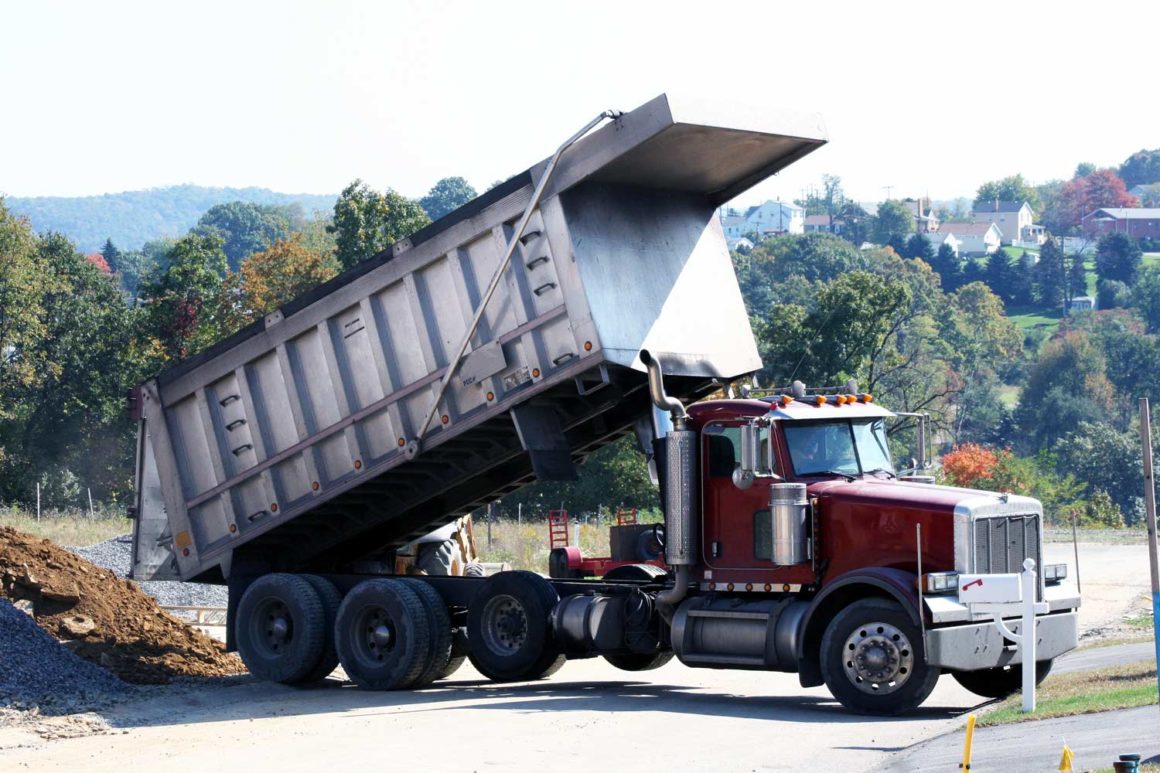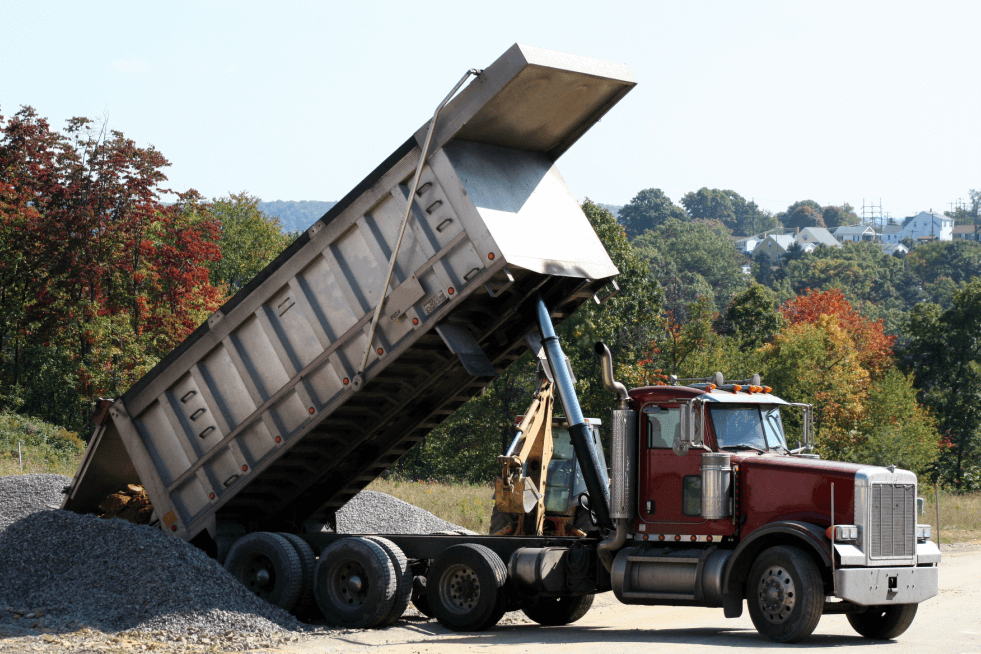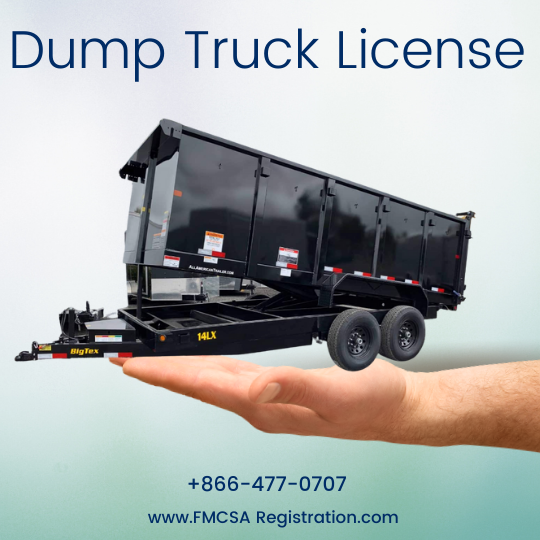
To drive a dump truck, you need a commercial driver’s license (CDL) from the relevant state authority. Obtaining a CDL ensures you have the necessary skills and knowledge to operate a large commercial vehicle like a dump truck safely on the road.
Driving a dump truck requires specific training and expertise due to the size and weight of the vehicle. The CDL process involves both written tests and hands-on driving evaluations to guarantee that drivers understand and follow all safety regulations. By obtaining the proper license, you demonstrate your ability to operate a dump truck confidently and responsibly while ensuring the safety of yourself and others on the road.
Navigate As You Want:
Requirements For Driving A Dump Truck
Commercial Driver’s License (CDL) Class B is the primary requirement for driving a dump truck. It allows you to operate vehicles weighing over 26,000 pounds. The CDL Class B also covers single vehicles with a GVWR of 26,001 pounds or more. In addition, you may need additional endorsements based on the specific dump truck you intend to operate. These endorsements may include air brake, tank, or hazardous materials endorsements. It’s crucial to check with your local Department of Motor Vehicles to determine the specific endorsements needed for driving a dump truck in your area.

Credit: nstschool.com
Cdl Class B License
A CDL Class B License is required to drive a dump truck. To obtain this license, you must meet certain criteria:
- Age Requirement: You must be at least 18 years old to apply for a CDL Class B License.
- Written Examination: Pass a written test covering driving rules and regulations.
- Medical Certification: Provide a medical certificate showing you are physically fit to drive.
- Skills Test: Demonstrate your ability to operate a dump truck safely and effectively.
Obtaining a CDL Class B License involves meeting age requirements, passing written and skills tests, and providing medical certification.
Additional Endorsements
When driving a dump truck, additional endorsements may be required depending on the type of vehicle. One important endorsement is the Tank Vehicle Endorsement, which allows you to operate trucks that transport liquids or gases. Another key endorsement is the Hazardous Materials Endorsement, which is necessary if you are transporting hazardous materials. These endorsements are essential for ensuring safety and compliance with driving regulations.
Special Requirements For Dump Trucks
Driving a dump truck requires a specific license that allows you to operate vehicles of that size and weight. Dump trucks are subject to weight and size regulations, which vary by state. Safety regulations also play a crucial role in obtaining the necessary license. Employers may have additional requirements for operating dump trucks, which might include specialized training or certificates.
Resources For Obtaining A Dump Truck License
The resources for obtaining a dump truck license vary depending on your location. In the United States, you can start by visiting the Department of Motor Vehicles (DMV) website for information on requirements and the application process. They will provide you with the necessary forms and guide you through the steps to obtain a commercial driver’s license (CDL) with a dump truck endorsement.
Another option is to consider attending commercial driver training schools that offer specialized courses for obtaining a dump truck license. These schools provide hands-on training and education specifically tailored to the skills needed for driving a dump truck. They can help you prepare for the written and practical exams required to obtain your license.
Additionally, there are online study guides available that can assist you in preparing for the written part of the examination. These guides typically cover the relevant topics and provide practice tests to test your knowledge. Taking advantage of these resources can help you increase your chances of passing the exam and obtaining your dump truck license.

Credit: www.truckerstraining.com

Credit: fmcsaregistration.com
Frequently Asked Questions For What License Do You Need To Drive A Dump Truck
What License Do You Need To Drive A Dump Truck?
To drive a dump truck, you need a commercial driver’s license (CDL) with the appropriate endorsement. Typically, you will need a Class B CDL with an air brake endorsement. However, the specific requirements can vary depending on the weight and usage of the dump truck.
It’s important to check with your local department of motor vehicles for the exact licensing requirements in your area.
Can You Drive A Dump Truck With A Regular Driver’s License?
No, you cannot drive a dump truck with a regular driver’s license. Dump trucks fall under the category of commercial vehicles, and to legally operate them, you need a commercial driver’s license (CDL) with the necessary endorsements. This ensures that drivers have the proper training and qualifications to handle these larger and more specialized vehicles.
How Do You Obtain A Commercial Driver’s License For Driving A Dump Truck?
To obtain a commercial driver’s license (CDL) for driving a dump truck, you need to meet certain requirements set by your state’s department of motor vehicles. This typically includes passing a written knowledge test, a skills test, and a medical exam.
Additionally, you may need to complete a training program or apprenticeship to gain the necessary experience and knowledge for safely operating a dump truck.
Conclusion
Obtaining the right license to drive a dump truck is crucial for safety and legal compliance. By understanding the specific requirements and obtaining the appropriate certification, individuals can operate these vehicles with confidence. Navigating the licensing process can be complex, but with the right information and guidance, aspiring dump truck drivers can achieve their goals and contribute to the construction industry.





